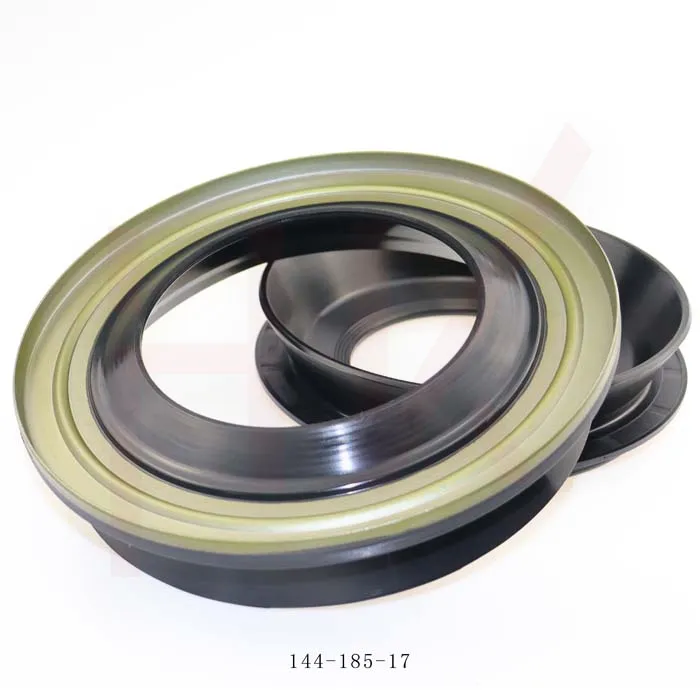Dek . 04, 2024 21:50 Back to list
what is the function of oil seal
The Function of Oil Seals An In-Depth Look
Oil seals, also known as oil or grease seals, are crucial components in various mechanical systems, particularly in engines, gearboxes, and differentials. Their primary function is to prevent the leakage of lubricants and fluids, ensuring the smooth operation of machinery while also protecting the internal components from contaminants such as dirt, dust, and moisture. Understanding the function and importance of oil seals is essential for both manufacturers and maintenance technicians alike.
Key Functions of Oil Seals
1. Leakage Prevention One of the primary roles of oil seals is to prevent the escape of lubricating oils and other fluids from mechanical assemblies. Oil seals maintain an effective barrier between the moving parts and the external environment. Proper sealing is vital to maintain the necessary lubrication of components, reduce friction, and prevent overheating, which can lead to premature wear and failure.
2. Contaminant Exclusion In addition to keeping lubricants in, oil seals also serve to keep harmful contaminants out. Machinery is often exposed to a variety of environmental factors, including dust and moisture, that can adversely affect performance if they enter internal systems. Oil seals create a protective barrier, ensuring that contaminants do not compromise the integrity and functionality of the components they are designed to protect.
3. Pressure Maintenance Many applications function under pressure, whether it be hydraulic systems or internal combustion engines. Oil seals help maintain this pressure by providing a tight fit, keeping fluids contained within designated areas. This is particularly important in hydraulic applications, where pressure fluctuations can lead to inefficiencies and potential system failure.
4. Rotational Sealing In rotating equipment, oil seals are designed to accommodate the movement of shafts while maintaining an effective seal. This is achieved through specific designs that include lips and springs. The sealing lip, which is often made of rubber or synthetic materials, exerts pressure against the shaft to prevent leakage. The spring adds additional force to the sealing lip, ensuring consistent contact and improving the seal's effectiveness over time.
5. Temperature Resistance Oil seals must withstand a range of operating temperatures, as they are often found in environments that experience significant thermal fluctuations. High-quality oil seals are designed to maintain their shape and effectiveness under various temperatures, ensuring long-lasting performance. Materials like nitrile rubber and fluorocarbon are commonly used due to their resistance to heat and wear.
what is the function of oil seal

Applications of Oil Seals
Oil seals are utilized in a wide variety of applications across different industries. Some common uses include
- Automotive Industry In vehicles, oil seals are found in engine components such as crankshafts and camshafts, as well as in transmissions and differentials. Their role in preventing oil leaks is crucial for vehicle performance and longevity.
- Manufacturing Equipment In industrial machinery, oil seals are used to protect bearings and gears from contamination and oil loss, ensuring effective and reliable operation.
- Aerospace Oil seals are essential in aerospace applications where fluid containment and contamination prevention are critical for safety and performance.
- Home Appliances Many household devices, such as washing machines and refrigerators, rely on oil seals to maintain the necessary lubrication for their moving parts.
Conclusion
In summary, oil seals play a vital role in maintaining the performance and longevity of machinery across various sectors. By preventing fluid leakage, excluding contaminants, maintaining pressure, accommodating rotational movement, and resisting temperature fluctuations, oil seals ensure that mechanical systems operate efficiently. With their significant functions and diverse applications, understanding and maintaining oil seals is crucial for the effective operation of any machinery. Regular inspections and timely replacements can help avoid costly repairs and ensure optimal performance, making oil seals an integral part of mechanical engineering and maintenance.
-
TCN Oil Seal Metal Ring Reinforcement for Heavy Machinery
NewsJul.25,2025
-
Rotary Lip Seal Spring-Loaded Design for High-Speed Applications
NewsJul.25,2025
-
Hydraulic Cylinder Seals Polyurethane Material for High-Impact Jobs
NewsJul.25,2025
-
High Pressure Oil Seal Polyurethane Coating Wear Resistance
NewsJul.25,2025
-
Dust Proof Seal Double Lip Design for Construction Equipment
NewsJul.25,2025
-
Hub Seal Polyurethane Wear Resistance in Agricultural Vehicles
NewsJul.25,2025
-
The Trans-formative Journey of Wheel Hub Oil Seals
NewsJun.06,2025
Products categories
















